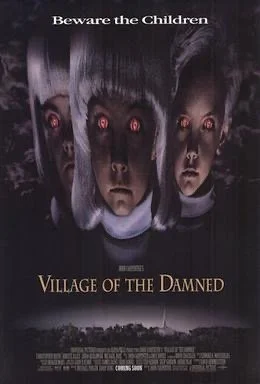Director: John Carpenter
Cast: Christopher Reeve, Linda Kozlowski, Kirstie Alley, Mark Hamill
Have I Seen it Before: Yes. I’m not 100% sure how, when my average of watching some of Carpenter’s later films has been low for quite a while, but I imagine it showed up on a Netflix recommendation at some point, and the thought becomes, “John Carpenter and Christopher Reeve? What could possibly go wrong?”
Did I Like It: And nothing much really does go wrong, so there’s that, but I can’t report much goes right, either.
With every one of Carpenter’s later movies, I keep lamenting the fact that at a certain point Dean Cundey stopped shooting his pictures. I mean, I guess Cundey at this moment is off shooting movies for Spielberg and the like, but is it really that hard for him to make the time for his older friend Carpenter? It seems like Carpenter is in a pattern with every othe movie in this phase of his career. With They Live (1988), I’m very nearly prepared to let Cundey go the way he wants to go (which was apparently directing Honey We Shrunk Ourselves (1997)) and just go withe the flow and accept what Gary B. Kibbe has to offer. Then I’m struck with Memoirs of an Invisible Man (1992), and I yearn for Carpenter’s glory days. But then, right on schedule In The Mouth of Madness (1994) threatens me with a Carpenter renaissance.
And now we’re here. One might want to nitpick the little things that went wrong. The special effects aren’t anything beyond the 1960 original, which really leaves one to wonder why they felt the need to remake the story in the first place. Reeve is solid, but he managed to be solid in Superman IV: The Quest for Peace (1987), so that defense will hardly work in the film’s defense. Alley made her bones in genre movies (or rather the genre movie, by way of Star Trek II: The Wrath of Khan (1982), and I can’t ever dismiss someone who was in that movie), but it feels like she has just spent too much time doing sitcoms (again, anyone on Cheers on which I cannot and will not turn my back) to bring any degree of earnestness to really much of anything.
Ultimately, there is one problem that governs the film’s failures. Carpenter has been on the record saying he was a gun-for-hire (despite him getting his name above the title once more) , but there is not a moment where I needed him to tell me that. Everything here is perfunctory, and that is the last thing one wants to see from a Carpenter film. Ultimately, it’s unfair to think that Cundey shooting the thing would have saved much of anything.

